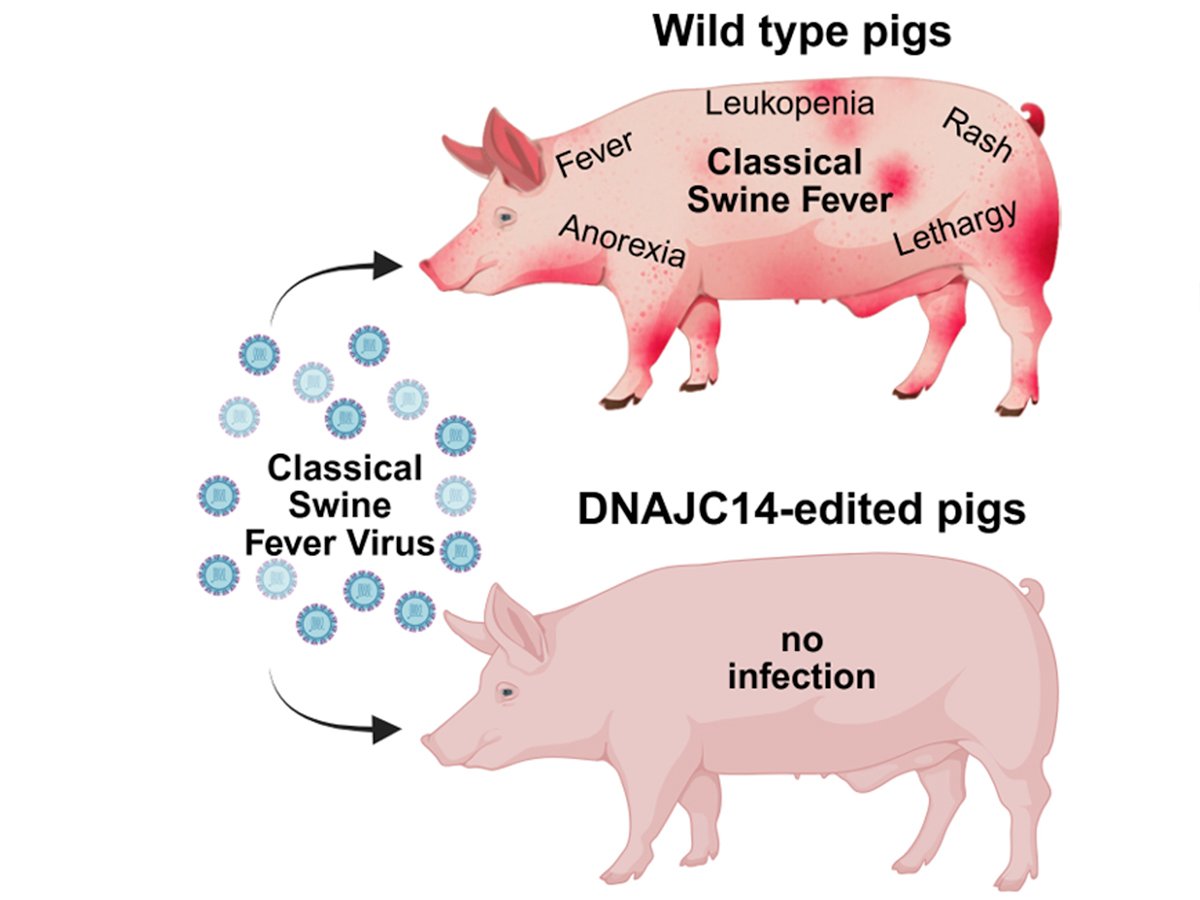For farm leaders last week, the day before the Feb. 26 budget was the real budget day.
Agriculture minister Gerry Ritz stole most of finance minister Jim Flaherty’s thunder Feb. 25 by announcing legislative changes that will make money available to livestock producers soon and will make money available to the hog industry for a sow cull program.
Ritz said he convinced prime minister Stephen Harper to keep the livestock aid separate from the budget debate so it could move through Parliament more quickly and before any election is triggered.
Read Also

Gene edited pig resistant to classical swine fever
British scientists have discovered a gene edit that could provide resistance to classical swine fever in pigs and Bovine Viral Diarrhea in cattle
Flaherty simply reannounced them.
“We are providing additional support for Canadian farm families – better access to $3.3 billion in advances to cope with extraordinary market pressures in the livestock sector and $50 million to help the hog sector adjust to new market realities,” the finance minister said in his budget speech.
Farm leaders on Parliament Hill understood that there was little left for the budget to say.
“The obvious program need was the livestock crisis and that was dealt with yesterday,” Canadian Federation of Agriculture president Bob Friesen said Feb. 26. “We appreciate that help.”
Grain Growers of Canada executive director Richard Phillips said the help for the livestock sector is a major boost for his producers.
“The domestic market for feed grains is hugely important so help to that sector is important to us,” he said.
Otherwise, there was little for agriculture in the modest, hold-the-line $240 billion spending plan, Flaherty’s third budget, and farm leaders had some complaints about what was not included.
The biggest food-related announcement was that the federal government will invest $113 million over the next three years in a program of increased vigilance by the Canadian Food Inspection Agency to keep unsafe products off the market.
Almost $30 million of the $113 million cost will come from CFIA itself after a review of its operations during the past two years produced savings of $29.7 million to 2010-11.
A government official at a background briefing on the budget said the money will be used to hire more inspectors and staff to do more inspections of products, including fresh produce.
“Outside the heavily inspected areas like fish, meat and dairy, there have been concerns about product safety and recalls,” she said. “That is what this will target.”
The food safety action plan, first announced by prime minister Stephen Harper in mid-December with almost no detail, was outlined for the first time in Flaherty’s budget.
“The CFIA is transforming the way it performs its core role so that it can pursue smarter ways of managing risks to human and animal health,” said the budget document. “These savings are being used to help fund a major reinvestment in the food safety action plan. This will ensure that Canada better manages emerging health risks and ensure the quality and safety of products Canadians purchase.”
One of the CFIA savings identified by the review could be controversial. Beginning next year, the government said the agency will save several million dollars by contracting out some inspection to the private sector.
The budget also announced a $10 million, two-year research project to try to demonstrate that use of biofuel in Canadian vehicles can produce the greenhouse gas emission reductions that have been promised.
The announcement came the same day the House of Commons agriculture committee completed a speedy review of Bill C-33 that will support Canada’s policy of requiring five percent biofuel content in gasoline by 2010 and two percent biodiesel by 2012.
The government also announced that fees for renewal of firearms licences will be waived until May 2009.
Farm leaders bemoaned the opportunities lost.
Friesen said the government should have embraced CFA proposals for product-of-Canada labelling and improvements to the design of the next generation of farm programs.
He also complained that the Conservatives had not embraced the idea of a co-operative investment fund that would help finance rural development.
Philips said the budget was helpful in promising to study increased use of ethanol in fuel.














